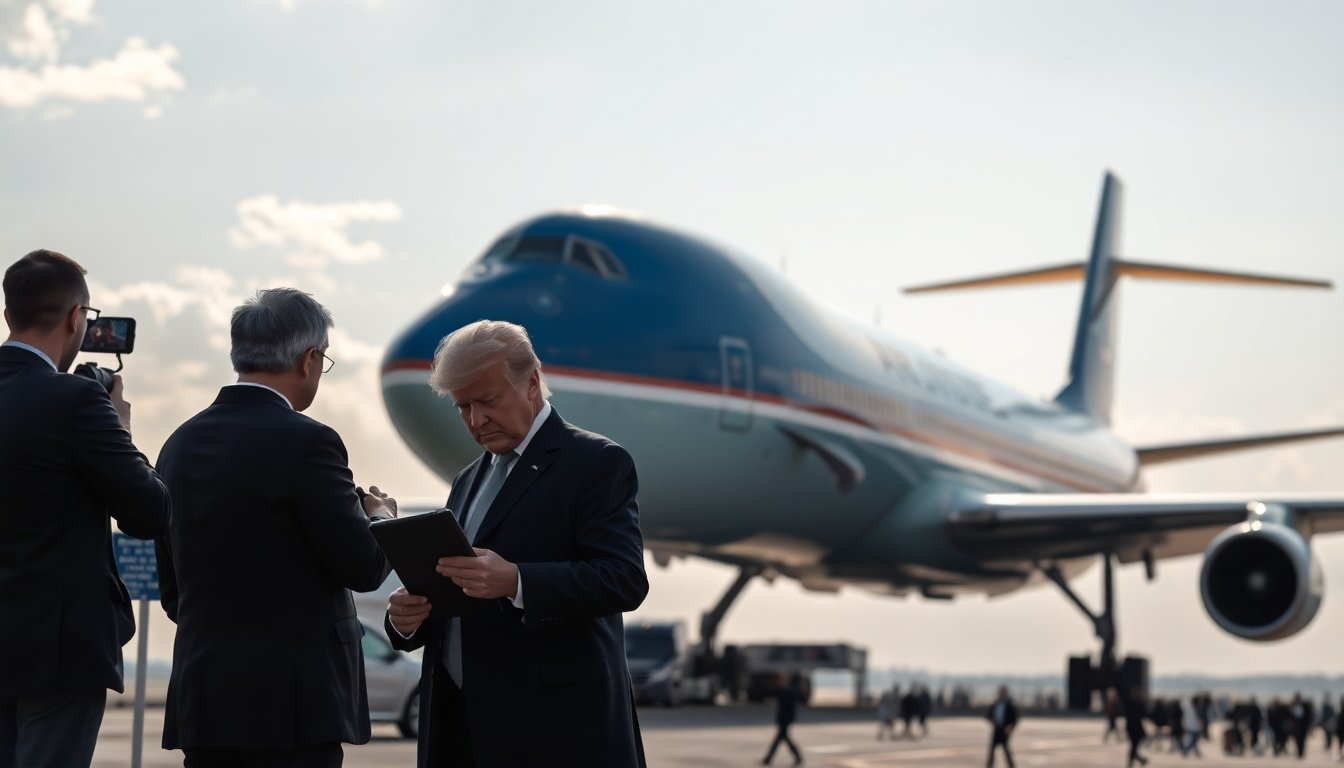Table of Contents
As President Donald Trump embarks on a significant tour of Asia, he has hinted at a possible meeting with North Korean leader Kim Jong Un. This announcement comes amidst ongoing geopolitical tensions and debates surrounding North Korea’s nuclear capabilities. Trump’s remarks suggest a willingness to engage in dialogue, a stark contrast to previous interactions that have been fraught with challenges.
During a press briefing aboard Air Force One, Trump remarked, “If you want to spread the word, I’m open.” This statement echoes his previous invitation in, when he unexpectedly suggested a handshake with Kim at the demilitarized zone separating North and South Korea. That historic meeting made Trump the first sitting U.S. president to set foot in North Korea, marking a significant moment in diplomatic relations.
The implications of a potential meeting
While Trump is keen on reopening lines of communication, Kim Jong Un has shown a reluctance to discuss denuclearization. This raises critical questions about the nature and purpose of any potential talks. Trump acknowledged that North Korea possesses a substantial arsenal of nuclear weapons, stating, “They have a lot of nuclear weapons, but not many phones.” This statement highlights the stark communication gap between the two nations, which has historically hindered bilateral discussions.
Recognizing North Korea’s nuclear status
In a surprising twist, Trump also suggested the possibility of officially recognizing North Korea as a nuclear power. This idea has raised eyebrows among U.S. allies, particularly in South Korea, who view it as a dangerous precedent. Trump stated, “When you say they must be recognized as a nuclear power, well, they have a lot of nuclear weapons.” This acknowledgment could significantly alter the dynamics of international negotiations.
Challenges in U.S.-North Korea relations
Despite the potential for dialogue, U.S. officials have indicated that an official meeting between Trump and Kim is not on the current agenda. Trump’s previous encounters with Kim, which included three summits during his first term, did not yield the desired results regarding denuclearization. Many experts argue that these talks were more about optics than substantial policy changes.
Broader geopolitical context
As Trump navigates his Asia tour, which includes stops in Malaysia, Japan, and South Korea, he is also set to engage with Chinese President Xi Jinping. The upcoming discussions are expected to focus on trade relations and regional security, indicating that Trump’s Asia trip is about more than just North Korea. He remarked, “We have a lot to talk about with President Xi, and he has a lot to talk about with us,” suggesting a multifaceted approach to U.S. foreign relations in the region.
Furthermore, Trump has recently criticized Canada, indicating that he does not plan to meet with Canadian Prime Minister Mark Carney during this trip. His focus seems to be on strengthening ties with Asian allies while navigating complex relationships with other world leaders. The ongoing tensions over trade and tariffs further complicate U.S. diplomatic efforts.
In an era marked by uncertainty and shifting alliances, Trump’s willingness to engage with Kim Jong Un may represent a strategic pivot in U.S. foreign policy. As he prepares for meetings with various leaders, the outcomes of these interactions could have profound implications for the region and beyond.


